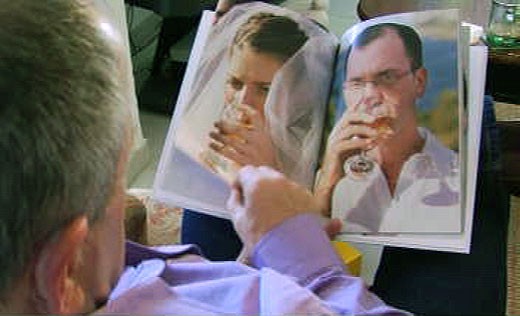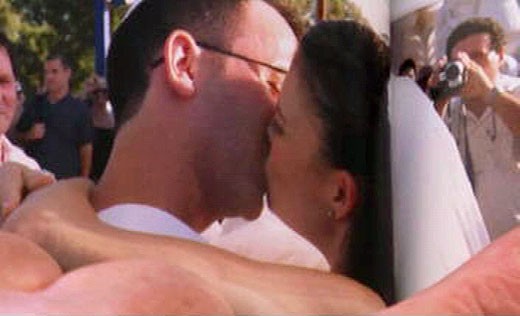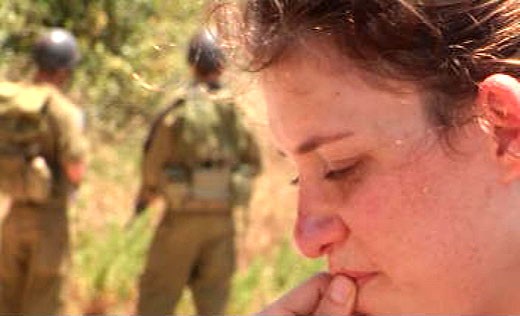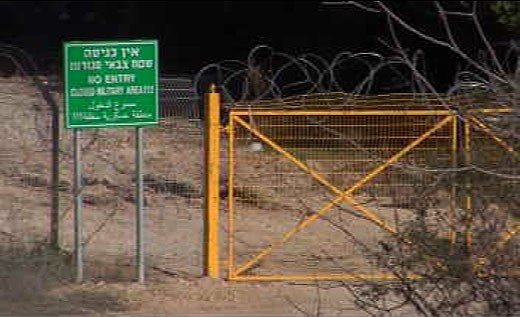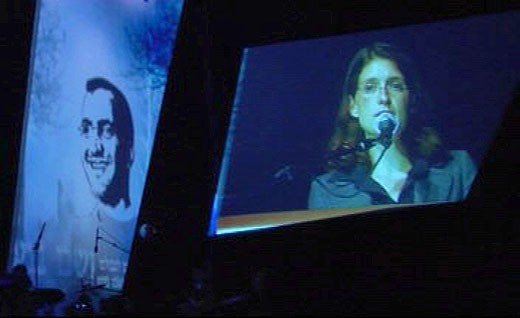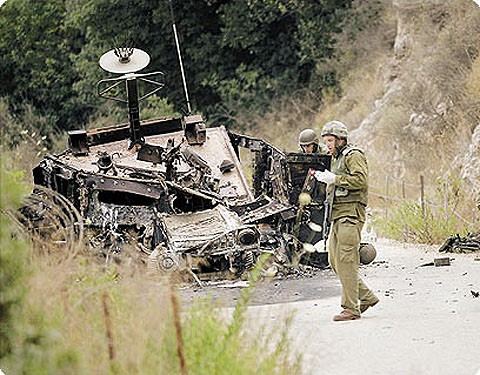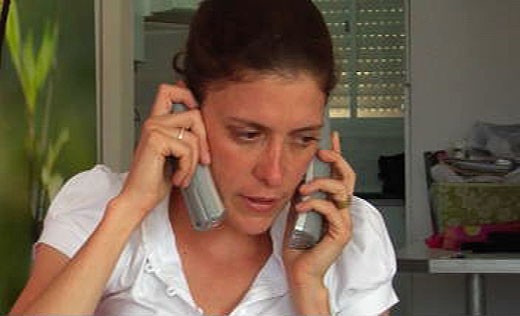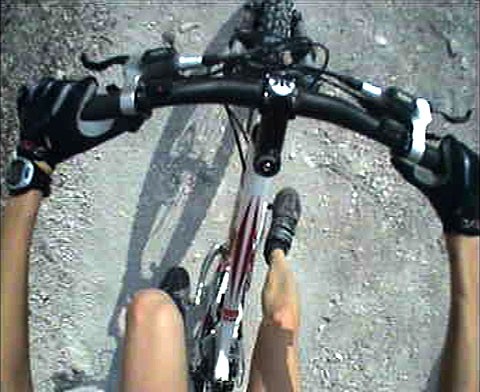Synopsis
Festivals
- New York Jewish Film Festival, USA, 2010
- DMZ Docs - Korea Int'l Documentary Film Festival, 2009
- Melbourne & Sydney Israeli Film Festival, Australia, 2009
- HotDocs Int'l Documentary Film Festival, Canada, 2009
Press & Links:
Chronicle of a Kidnap is a poignant example of what a gifted and meticulous director can do when called upon to do justice to extremely difficult content. What might have wound up feeling dry or overwhelming has just the right touch, taking us into a devastating milieu with frank, genuine wisdom and understanding of the impact of the catastrophic. For the entire review by Christopher Soden/EDGE, July 27, 2009, check: http://www.edgesanfrancisco.
com/index.php?ch= entertainment&sc=movies&sc2=& sc3=features&id=93354 "Chronicle of a Kidnap" is stunningly made, and tells us much we did not know about the event itself and the devastating emotional aftermath.
For the entire review by Don Perlgut, check: http://donperlgut.wordpress.
com/2009/08/20/aice-israeli- film-festival-sydney-and- melbourne
The capture of Ehud Goldwasser and Eldad Regev on 12th July 2006 sparked the 34-day conflict known as the 2006 Israel-Hezbollah War. Goldwasser's wife Karnit and her two-year campaign to find information about her missing husband is the focus of this short documentary that at its best is quite moving and insightful, but suffers from bizarre editing choices and incredibly annoying sound design that substantially reduce the impact of the film.
Chronicles of a Kidnap is at its best when exploring the effect on those who remain of not knowing the fate of their loved one. How should one react? What demands can a citizen make of her government? And what can the response of a responsible government be? When is it long enough and time to 'let go'? In eloquent vignettes, Karnit Goldwasser and her family and acquaintances describe the effect of living with such unknowns, forming an overall narrative that demonstrates significant insight.
For the entire review in Hoopla, Australia, please check: http://hoopla.nu/films/shvuia/
chronicle-of-a-kidnap.html
Chronicle of a Kidnap ends with a knock at the door. Karnit Goldwasser speaks about the end of the story, about the mind that works with the possibility of a bad ending, and the possibility of facing it. "To move ahead, or to die with him" – him, being Udi her husband, the kidnapped soldier whose fate is unknown. To die is not only to stop breathing, she explains, but to stop functioning. "The question is what is the end" she says and gets up to open the door. The end. For Karnit Goldwasser each knock at the door could be fateful.
Director Nurit Kedar knows this and closes a powerful film in a strong way. Kedar employs additional voices that can facilitate what it really means to be Karnit Goldwasser. What does it mean to have to market pain, to sell agony, to expose your insides in front of the whole world. What does it mean to sit with world leaders, and with Shimon Peres – in a wisely edited scene where all the words are swallowed up by the music and the eyes say it all.
Karnit Goldwasser's face reflects the deep crisis of the hostages' families, along with their uncompromising determination to turn the world upside down.
Ha'aretz, July, 2008
A strong film…unforgettable scenes that won't easily leave you
Ma'ariv, July, 2008
Two years have passed and it is as if nothing had been said until you birthed this film. This is the most realistic of modern art, and the most sensitive that I have encountered.
Associated Press, July
hi nurit,
as you may remember, i was in israel the day hezbollah kidnapped goldwasser and regev, and was just leaving for home on the very day that israel responded and war began. i have been following the situation as closely as one can from the other side of the world, and so was very eager to see "chronicle of a kidnapping," which i found extremely compelling, heartwarming, provocative and especially -- in many ways -- poetic.
from the beginning, one of the most amazing things to me was that you were trusted by karnit and her family (and friends) to follow, document and tell their story from inside the painful and surreal events that would change their lives forever. this is an honor to you, a testament to your skill as a filmmaker and (especially) to your sensitivity and compassion as a friend, as a fellow israeli citizen -- and -- as a citizen of the world.a few observations after one viewing (not in any order):
i could tell by looking at the facial expressions (but mostly the eyes) of shimon peres that he knew the two kidnapped soldiers were no longer alive but obviously couldn't say so. i'm sure high israeli officials knew this a long time ago. still, there's always hope...
i loved the jumpy (abstractness of the) bicycle footage. it's nice that we didn't know it was karnit riding until later on in the film. the landscape at the lebanese border area looks exhausted, looks war weary, looks old -- not ancient old, but the kind of old that suggests a place of sorrow and death, not growth and life. it was a poignant metaphor throughout the film.loved the music, the drones. you always hit the right emotional timbres.
the weave of interviews presents the conflicting and emotionally charged tensions that weigh geopolitical issues against the private pain of a family and the overwhelming symbolism that the soldiers themselves and their kidnapping represent to the people and the state of israel.
on the family side, i was especially impressed with the bold, brash and brutal honesty of ehud's mother. she was profoundly intense, expressing her pain ("you can't put ice on the pain!") in sharp contrast to karnit, who is much more reserved, introspective and guarded.
on the non-family" side, i found myself fascinated by the former mossad man ("i'd give back tel aviv"). he was very candid, very informal and real, offering his measured geo-political analysis of the situation while at the same time imagining how he would feel if he were in the goldwasser family position.
i loved the way you used "silence" in the scene following karnit's meeting with the french president. the frenzied power of the many questions posed by the media; the contemplative power of the way you edited that sequence without showing her answers.i was surprised to learn that karnit and her family had a media advisor, but of course, in retrospect, this is totally appropriate and obviously necessary. this is one of the stunning messages of your film: one day even an ordinary citizen (a student, no less), can wake up and find yourself in a drama (in this case a very very sad drama about life, love and death) that takes you to the kings and queens of the world -- sometimes in secret.i liked the way you used karnit talking at the end of her long journey to new york/new jersey and ended the section with her line about the "american red cross promising..." another example of silence speaking volumes. it created the impression of an enormous emotional vacuum, for her and for us..was touched by the subject of "no children" for karnit (at least for the time being anyway)."move on or die." tragedy makes us understand (and explain) life in very simple equations.
bravo.
all best,
alan
Director Alan Berliner, August, 2008
Dear Nurit,
I am writing you these lines to underline, how fascinated I was watching the rough cut of your recent film.
I was thrilled about the sincere, sensitive but again straight (sometimes also harsh and undiplomatic) way you told this story. You made it possible to bring over the troubles and difficulties of this not uncomplicated conflict, choosing (and especially getting) the right statements of the right protagonists; protagonists, other filmmakers will for sure never get to speak out the things they said to you.
The quite but intensive way you follow up the wife of the kidnapped soldier shows more than thousand words what is going on, how she feels and what kind of intentions she seems to be up to. The way you tell and describe this story captures the viewer from the very beginning, that one has the feeling, that every additional comment could destroy this film.
It seems like an impressionistic picture of one life, one family, one country and one conflict, where every brush of paint seems to be chosen so carefully, that one dip too much could destroy it. Some would say, that you tell this story to subjective and suggestive. But it is, what it is: A Nurit Kedar film, where you again just dare to show what you see and feel, if people like it or not. Nevertheless, you stay what you are - a strong storyteller.
With my best regards,
Eric Friedler, Commission Editor
NDR Germany
The film Chronicle of a Kidnap is a very important and pertinent film, which offers a rare and unique insight into the world of those affected by a 'kidnapping' like this. The issues it raises are critical within the important current debate about Israel and its future in the region.
I would recommend that people watch this film for so many reasons. It tells the story in a very clear and honest way. It goes straight to the heart of the issues and the film has access to the key characters who really do have the 'inside track' about what happened and what is going on.
One of the things that struck me the most about the film is that these characters are not only hard to access but to get them to open up in such a manner is very difficult. Nurit Kedar has managed to not only get them on film. But they also tell the story in an engaging and revealing manner. That is rare indeed.
This film is an important not only in the current debate about Israel and its place in the Middle East but historically too.
Inigo Gilmore, Chief Correspondent Editor (Middle East)
Channel 4 news
"I’m finding it very dramatic and engaging! Congratulations! It has your creative hand written all over it. I love all the suspense and the use of the bike, music, etc.
nurit.......it's beautiful! you've really crafted such an artistic and poignant story. i think it's exactly the film you really wanted to make - such a personal yet very public and in many ways universal story even though it is so unique. your editor, cinematographer, composer and of course all with your direction = fantastic."
Gail Dolgin, producer/director, based in Berkeley, California.
Her film, Daughter from Danang, was nominated for an Academy Award, won the Sundance Grand JuryFestivals
- New York Jewish Film Festival, USA, 2010
- DMZ Docs - Korea Int'l Documentary Film Festival, 2009
- Melbourne & Sydney Israeli Film Festival, Australia, 2009
- HotDocs Int'l Documentary Film Festival, Canada, 2009
- San Francisco Jewish Film Festival, USA, 2009
- Hamburg Int'l Film Festival, Germany, 2008
Educational
- Duke University
- Ohio State University
- Library of Congress
- University of Pennsylvania
- Yale University
